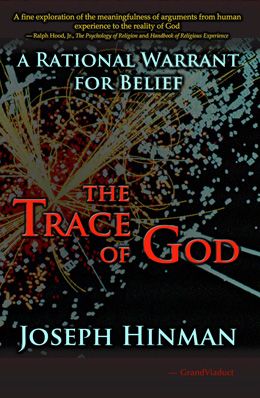
Last time I discussed an article in which geneticist Colin Blackmore makes triumphalist statements of science ridding roughshod over religion:
Science has rampaged over the landscape of divine explanation, provoking denial or surrender from the church. Christian leaders, even the Catholic church, have reluctantly accommodated the discoveries of scientists, with the odd burning at the stake and excommunication along the way....The process of Christian accommodation is a bit like the fate of fieldmice confronted by a combine harvester, continuously retreating into the shrinking patch of uncut wheat.Ten days ago, on Darwin's birthday, Richard Dawkins, Archbishop of Atheism, and Richard Harries, former Bishop of Oxford, conducted a public conversation in the Oxford University Museum, where Bishop Sam Wilberforce and Darwin's champion, Thomas Henry Huxley, had debated Darwin's ideas in 1860. The two Richards were more civilized. But inevitably, Richard H claimed for religion a territory that science can never invade, a totally safe sanctuary for Christian fieldmice. Science is brilliant at questions that start "how", but religion is the only approach to questions that start "why". Throughout history, human beings have asked those difficult "why" questions.[1]
Based upon comments to that piece two questions present themselves:
(1) Is science steadily taking ground from Religion?
(2) Science can't disprove God but has it undercut all reasons to believe in God?
That science is steadily taking ground is Largely a matter of what one thinks constitutes the ground for religion. The atheist friend commenting on that section looks at the matter as though religious belief and skepticism are two warring empires. The strength of these empires depends upon their influence in the world and how many adhere to each. If that is the case religion is still vastly overwhelming science. Even though we depend upon science for so many facets of life, 90% of humanity still believes in God and only about 3 to 6% actually actively say there is no God. It really is a matter o how one tallies things up.
I think it's irrational to see science as taking ground away from religion because the only ground it's taken wasn't really religion's ground. In ancient times religion was all we had to explain things, So they depended upon it a lot for all explanations. As humanity began to understand more about the physical workings of the world it began to accord proper sphere's to each endeavor. Now we have an ideology (scientism) that seeks to take all the marbles for science and to eliminate all other forms of knowledge, religious or otherwise, Scientism destroys a lot more than just religion: art, literature, philosophy, ethics, feeling, humanity. Yet that's not science it;s an ideology of unbelief. Science is not about disproving religion so there's no basis for understanding science's triumphs as defeat for religion, We can be both scientific and religious. In fact we can be scientific, religious, skeptical, artistic, cultured, and intellectual all at the same time.
As for the assertion that religion is undercutting the grounds for belief, that depends upon what one thinks is the ground or belief. Areas of overlap with science but certain aspects will never be revealed, We want to know origins. We want to know why we are here even if there is no real reason (we want to know that too). This is why we don’t see scientists just throwing up their arms and saying “there's no way to tell, it's just here that's all, we can't know why.” They are still making theories because we want to know. We don’t find it satisfying to just leave it hanging. Perhaps there is no actual reason and saying that is not satisfying than sloughing off the question as though it's not important; that is most unsatisfying of all. Yet modern secular thought can't even ask the question much less answer it. It's not enough to merely talk about planetary formation and how the galaxy emerged. That's not an answer to the question “why are we here?” Even if the answer is “there is no way to know” we still want to know that definitively. Modern secular thought can't give a definitive answer because the question is out of bounds. That is a metaphysical question and modern thought abhors metaphysics even though Heidegger would say it is metaphysics. When purpose and ends and goals have already been eliminated as impossible there's no point in asking.
Religious belief is about integration into one's place in the universe. It's more than just understanding the physical workings. The integration point is depth of being. All religions deal with this they all define the nature of the human problematic, they assess what is at the heart of the problem of being human, They mediate a solution usually in terms of ultimate transformation experience, that transformation opens up the point of integration where we understand our place in the universe. As Christians we understand that in terms of contingency. We are creatures of God. To be is to be a creature of God; we know our place in the universe and it all makes sense at least to some degree. We can't have any of this with just the physical level of understanding, We can have scientific wonderment and God. Those are not mutually exclusive. But we can't have depth of being with just the surface level of existence. Moreover the scientific wonderment as scientific and scientistic types describe it is not moving because it's science, The individual scientist may get a thrill from personal accomplishment but the real transformative aspects are pointing beyond themselves, The physical reality is pointing beyond itself to depth but the secular naturalist can't acknowledge that. We know they are pointing beyond human finitude because they point to the infinite. The juxtaposition of our own finite mortality against the infinite of space produces the sense of the numinous, The wondrous nature of the cosmos is a trigger for foundations of mystical consciousness.
There is no way to get in back of the final jumping off point for empirical observation such as background radiation that tells us of the big bang. We know from study of background radiation that there can't be an infinite regression of worlds.;[2] weather or not we can infer an eternal necessary origin is open for discussion.That's exactly why we can't write God off due to materialism or science, it is open to discussion. We are, therefore, left with reality as a brute fact. The brute fact is to be dreaded, thus the state of purpose being the antithesis of the brute fact is to be preferred. Sean Carroll says there is no reason why anything exists. He warns against not understanding reality all the way to the top. He says this because he wants us to know science.
More than two decades ago, the renowned astronomer Carl Sagan wrote that 'We live in a society exquisitely dependent on science and technology, in which hardly anyone knows anything about science and technology. This is a clear prescription for disaster.' Unfortunately, Sagan’s warning remains as true today as ever: American culture is deeply infused with an anti-intellectual distrust of scientific knowledge, a failure to understand the nature of peer-review, and an unwavering predilection for conspiracy theories and pseudoscience. [3]
Why is it important to know and understand the process that tells us there's no point to life? The ultimate reality we are going to get out of that is that nothing matters, but he wants us to know science we can understand climate change and vote accordingly. I share his concern about climate change but, what's the point of caring about future generations when life is just a big accident and there's no point to any of it? All Carroll can really prove is that science cam't produce a "why" in terms of our existence.[4] So he assumes that therefore there must be no why. But that assumes science is the only way to think and I'm not willing to make that assumption. Smith's argument that reality can't be an infinite regression of worlds means that it might be the produce of one eternal necessary reality. That would be a necessary and perhaps sufficient condition for assuming God or other higher answer of a religious nature.
The best science can do is tell us how things work. It cannot tell us weather or not there is more to it than that, This is the depth of being of which Paul Tillich speaks. One might call it the "why?" Now it may well be that there is no why. If that is the case it ca't be decided merely because science fails to supply the answer. That science does not supply an answer does not mean there is no other way to think about it, After all why is beyond the scope of science. Why is the province of religion. Religion seeks to understand the human condition to label the human problematic. This is at the heart of the human condition, the need to ask "why?" Understanding origins is a big part of the human condition. Materialism and phsyicalism just cut off that inquiry merely because the answer can't be supplied with their methods.
The further ground for belief not dependent upon scientific evidence of origins is experience of God's presence or the divine. While the only thing required for the validity of belief is this experience itself, due to it's transformative nature, it is backed by scientific study in the social sciences, this is what my book, the Trace of God, is about.[5] Since these experiences are about the divine and do impart a sense of the meaning of life, and they tend to produce in the experiencer effects of complete psychological overhaul, they supply noetic sense of understanding the why, even though it is notoriously hard to communicate. The scientistic type will argue this is some sort of unverifiable area. The social scientific methods help us to demonstrate the transformations wrought by this experience the content of the experience itself speaks of the divine.
From this I would make an argument that, to use the vernacular, philosophy still owns science. In other words the fact that we can reason about the nature of reality in relation to our own raison d'etre
that in itself proves the validity of existential and phenomenological inquiry and proves that science alone is not up to the task of giving us answers in this regard but is itself subject to critique.
Sources
[1] Colin Blackemore, "Science is Just One Gene Away from Defeating Religion." The Guardian. Originally from the Observer. 21st of Febuary, 2009. On Line:
http://www.theguardian.com/commentisfree/2009/feb/22/genetics-religion
accessed 10/29/13.
Colin Blakemore is Professor of Neuroscience at the Universities of Oxford and Warwick. He is a member of the UK Drugs Policy Commission, but the views expressed here are his own.
[2] Q. Smith
[3] Sean Carroll, “The Evidence is pretty incontrovertible...” Salon. (May 8, 2016) online resource URL:
[4] Ibid.
[5] Joseph Hinman, The Trace of God: Rational Warramt for Belief. Colorado Springs: Grand Viaduct, 2014,
Buy MY BOOK!

Order from Amazon
Ground breaking research that boosts religious arguemnts for God to a much stronger level. It makes experience arguments some of the most formidable.Empirical scientific studies demonstrate belief in God is rational, good for you, not the result of emotional instability. Ready answer for anyone who claims that belief in God is psychologically bad for you. Order from Amazon

1 comment:
Good points. Ultimately, it seems to me, these anti-religious folks are asking us to give up what it is to be human, and that is, that we need and seek meaning. Science has not and cannot prove that there is no meaning, and even if it could, we as humans would be, within the core of ourselves, unable to accept that.
Post a Comment